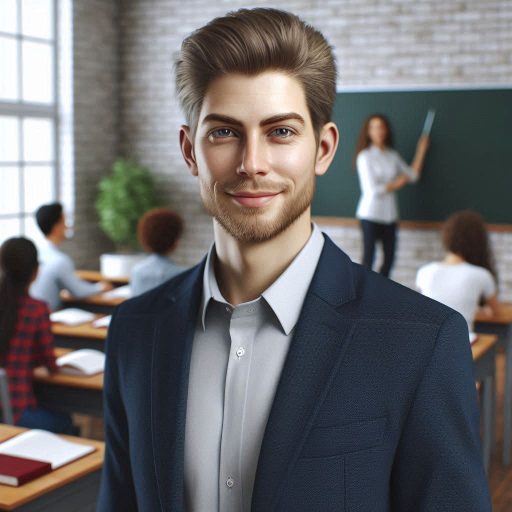Introduction
Gifted education targets students with exceptional intellectual or creative abilities.
This type of education aims to challenge and nurture their advanced skills.
Balancing rigor and fun is crucial in gifted education.
Rigor ensures students are intellectually stimulated, while fun keeps them engaged and motivated.
Maintaining this balance presents challenges.
Gifted students often seek more complex and demanding tasks.
Too much rigor can lead to burnout or boredom.
Conversely, too much emphasis on fun might prevent them from reaching their full potential.
Gifted educators must navigate these challenges to create a stimulating learning environment.
Key points to explore include:
- Defining Rigor and Fun: Understand what constitutes rigor and fun in gifted education.
Rigor involves challenging coursework and complex problem-solving. Fun includes interactive activities and creative projects. - Strategies for Balancing: Explore effective methods to balance rigor and fun.
Strategies include integrating project-based learning with challenging tasks and incorporating game-based elements into lessons. - Benefits of Balance: Discuss how maintaining this balance enhances students’ learning experiences.
It promotes deeper engagement and prevents burnout, fostering a love for learning. - Practical Examples: Provide real-world examples of successful implementation.
Highlight case studies or classroom practices that exemplify the balance between rigor and fun.
Balancing rigor and fun in gifted education is essential.
It ensures that students are both challenged and engaged, paving the way for their continued success and enthusiasm for learning.
Understanding the Needs of Gifted Students
Gifted students exhibit characteristics such as advanced cognitive abilities and intense curiosity.
They often possess a high level of creativity, critical thinking skills, and a strong desire for exploration.
Gifted students may also display asynchronous development, where their intellectual abilities outpace their emotional or physical development.
How they Differ from Their Peers
Gifted students have a unique way of processing information, often seeking more in-depth knowledge on subjects that interest them.
They may become bored or disengaged in traditional classroom settings that do not challenge their intellectual capabilities.
Gifted students may exhibit perfectionism, sensitivity, or a strong sense of justice, which can affect their interactions with peers.
Importance of Intellectually Stimulating Activities
Providing intellectually stimulating activities is crucial for keeping gifted students engaged and motivated to learn.
These activities can help foster creativity, critical thinking, problem-solving skills, and a love for learning in gifted students.
Transform Your Career Today
Unlock a personalized career strategy that drives real results. Get tailored advice and a roadmap designed just for you.
Start NowEngaging gifted students in challenging tasks that align with their interests can lead to greater academic achievement and personal fulfillment.
Need for Differentiation in Instruction
Differentiation in instruction involves tailoring teaching strategies to meet the unique needs and abilities of gifted students.
It helps ensure that gifted students are appropriately challenged and provided with opportunities for enrichment and acceleration.
By differentiating instruction, educators can create a supportive learning environment that allows gifted students to reach their full potential.
In fact, understanding the needs of gifted students is essential for providing them with a learning environment that balances rigor and fun.
Through intellectually stimulating activities and differentiated instruction, educators can help gifted students thrive academically and develop their full potential.
It is important to recognize and support the unique characteristics and abilities of gifted students to ensure they receive the educational opportunities they deserve.
Read: Extracurricular Activities for Gifted Students
Incorporating Rigor in Gifted Education
Importance of challenging gifted students with rigorous academic content
Rigor in gifted education is crucial for pushing students beyond their comfort zones and challenging them to reach new heights of achievement.
By providing challenging academic content, educators can help gifted students continue to grow and develop their skills and talents.
Examples of advanced learning opportunities such as acceleration, enrichment, and depth and complexity
One way to incorporate rigor in gifted education is through acceleration, which allows students to move through material at a faster pace than their peers.
This can help prevent gifted students from becoming bored or disengaged in the classroom and keep them motivated and challenged.
Enrichment activities also play a key role in providing rigor in gifted education.
These activities give students the opportunity to delve deeper into topics that interest them, explore new subjects, and engage in hands-on learning experiences that go beyond the standard curriculum.
Depth and complexity are other important aspects of incorporating rigor in gifted education.
By encouraging students to think critically, analyze information, and make connections between different concepts, educators can help gifted students develop advanced problem-solving skills and a deeper understanding of the material.
Benefits of rigorous instruction in fostering intellectual growth and maximizing potential
The benefits of rigorous instruction in gifted education are numerous.
By challenging students with advanced content, educators can help them reach their full potential and achieve academic success.
Rigorous instruction also helps foster creativity, critical thinking, and a love of learning in gifted students.
Overall, incorporating rigor in gifted education is essential for providing the academic challenges that gifted students need to thrive.
Transform Your Career Today
Unlock a personalized career strategy that drives real results. Get tailored advice and a roadmap designed just for you.
Start NowBy offering advanced learning opportunities, fostering intellectual growth, and maximizing potential, educators can help gifted students reach new levels of achievement and success.
Read: Promoting Independent Learning in Gifted Students
Balancing Rigor and Fun
Gifted education programs often face the challenge of maintaining a delicate balance between rigorous academics and engaging, enjoyable activities.
It can be difficult to ensure that gifted students are being challenged academically while also providing opportunities for them to have fun and be creative.
Challenge of maintaining balance
Gifted students thrive on intellectual challenges but also need opportunities for creative expression and social interaction.
Too much focus on rigorous academics can lead to burnout and disengagement, while too much emphasis on fun activities may not sufficiently challenge gifted students.
Finding the right balance is crucial to ensuring that gifted students are motivated, engaged, and fulfilled in their educational experience.
Incorporating fun and creativity
Integrating hands-on, project-based learning activities into the curriculum can provide an opportunity for gifted students to apply their knowledge in creative ways.
Allowing students to pursue passion projects or explore topics of interest can help maintain their motivation and enthusiasm for learning.
Using games, simulations, and multimedia tools can make challenging academic tasks more engaging and enjoyable for gifted students.
Creating a stimulating and supportive environment
Engage gifted students in discussions, debates, and collaborative projects to foster a sense of intellectual challenge and community.
Provide opportunities for students to work independently or in small groups to develop their problem-solving skills and creative thinking.
Offer support and encouragement to gifted students as they navigate the challenges of rigorous academics and the pursuit of their passions.
By finding the right balance between rigor and fun, gifted education programs can create a stimulating and supportive learning environment that promotes both academic excellence and personal growth.
Read: Assessment Tools for Gifted Students

Building a Supportive Learning Community
Importance of creating a positive and supportive learning environment for gifted students
Creating a positive and supportive learning environment is crucial for gifted students.
These learners often face unique challenges that require both academic and emotional support.
A supportive community helps them thrive both intellectually and socially.
Role of teachers, parents, and peers in supporting and encouraging gifted learners
Teachers play a pivotal role in this environment.
They should create a classroom atmosphere where gifted students feel valued and understood.
Transform Your Career Today
Unlock a personalized career strategy that drives real results. Get tailored advice and a roadmap designed just for you.
Start NowEncouraging their curiosity and providing challenges that match their abilities can keep them engaged.
Teachers must also be attentive to the individual needs of these students, offering personalized guidance and support.
Parents are equally important in supporting gifted learners.
They should foster a home environment that nurtures their child’s interests and strengths.
Open communication between parents and teachers helps ensure that the student’s needs are being met both at home and in school.
Parents can also help by encouraging their child’s passions and providing opportunities for enrichment outside the classroom.
Peers also play a significant role. Gifted students benefit from interactions with other high-achieving individuals.
Creating opportunities for collaboration and group work can enhance their learning experience.
Peer support helps gifted students develop social skills and learn how to work effectively with others.
Strategies for fostering social and emotional growth alongside academic rigor
Strategies for fostering social and emotional growth include creating opportunities for gifted students to explore their interests in a group setting.
Programs such as mentorships or special interest clubs can provide them with a sense of belonging.
Encouraging participation in extracurricular activities can help them build confidence and develop friendships.
Balancing academic rigor with emotional support ensures that gifted students excel not only in their studies but also in their personal development.
By building a supportive learning community, we can help them achieve their full potential.
Read: Common Myths About Gifted Education
Leveraging Technology and Innovation
Technology plays a crucial role in enhancing gifted education by providing new and exciting opportunities for learning.
Here, we will delve into the various ways technology can be leveraged to engage gifted students and support rigorous academic instruction.
Role of Technology in Enhancing Gifted Education
Technology serves as a powerful tool for personalized learning, allowing gifted students to explore topics at their own pace.
Virtual classrooms and online resources enable access to a wide range of educational materials beyond what traditional classrooms offer.
Interactive simulations and virtual labs facilitate hands-on learning experiences that cater to the inquisitive nature of gifted students.
Transform Your Career Today
Unlock a personalized career strategy that drives real results. Get tailored advice and a roadmap designed just for you.
Start NowCollaborative platforms and communication tools connect gifted learners with peers and experts, fostering a sense of community and collaboration.
Innovative Ways to Engage Gifted Students Through Technology
Game-based learning platforms can make complex concepts more engaging and help gifted students develop problem-solving skills.
Virtual reality and augmented reality experiences offer immersive and interactive learning environments that spark creativity and innovation.
Coding and programming workshops provide opportunities for gifted students to develop technical skills and create their own projects.
Digital storytelling tools allow students to express their ideas in creative ways, enhancing communication and critical thinking skills.
Benefits of Incorporating Digital Resources and Tools
Instant access to a wealth of information and resources enables gifted students to explore their interests and pursue independent research projects.
Data analytics and adaptive learning technologies track student progress and adjust learning materials to meet individual needs.
Online assessments and feedback mechanisms provide timely insights into student performance, allowing educators to tailor instruction to each student’s strengths and weaknesses.
Virtual field trips and guest lectures bring real-world experiences into the classroom, enriching the learning environment and broadening students’ perspectives.
By harnessing the power of technology and innovation, educators can create dynamic and engaging learning experiences that challenge and inspire gifted students to reach their full potential.
Encouraging Creativity and Exploration
Gifted students often possess a high level of creativity and curiosity that sets them apart from their peers.
It is essential to nurture and encourage these traits to help them reach their full potential.
The value of fostering creativity and curiosity in gifted students
Creativity is a vital skill that allows gifted students to think outside the box and come up with innovative solutions to problems.
Encouraging curiosity helps students stay engaged and motivated to learn, as they are driven by a desire to explore new ideas and concepts.
By fostering creativity and curiosity, educators can help gifted students tap into their full intellectual capabilities and achieve academic success.
Ways to encourage exploration and experimentation in learning
Provide opportunities for hands-on learning experiences that allow students to apply their knowledge in real-world situations.
Encourage students to ask questions, challenge assumptions, and think critically about the information they encounter.
Promote interdisciplinary learning by integrating different subjects and encouraging students to make connections across disciplines.
Benefits of allowing gifted students to pursue their interests and passions in a supportive educational setting
When students are allowed to pursue their interests, they are more likely to be fully engaged in their learning and develop a love for lifelong learning.
Allowing students to explore their passions can help them develop a sense of purpose and direction in their academic and personal lives.
Transform Your Career Today
Unlock a personalized career strategy that drives real results. Get tailored advice and a roadmap designed just for you.
Start NowBy creating a supportive environment that values and nurtures students’ interests, educators can help gifted students thrive and reach their full potential.
Overall, fostering creativity and exploration in gifted students is crucial for helping them develop the skills they need to succeed academically and personally.
By providing opportunities for students to explore their interests and passions in a supportive educational setting, educators can help gifted students reach their full potential and make a positive impact on the world around them.
Conclusion
Finding the right balance between rigor and fun is vital in gifted education.
By offering challenging academics coupled with engaging activities, educators can support the growth and development of gifted learners effectively.
It is essential to provide a stimulating environment that encourages both academic advancement and creative exploration for these students.
Ultimately, the key to nurturing gifted students lies in creating a holistic learning experience that challenges them intellectually while also allowing space for creativity and enjoyment.
By prioritizing both rigor and fun, educators and parents can ensure that gifted students reach their full potential and thrive in their educational journey.
Let’s commit to providing a well-rounded education that meets the unique needs of gifted learners and fosters their passion for learning.
Together, we can empower these students to excel academically and creatively, preparing them for success in their future endeavors.




